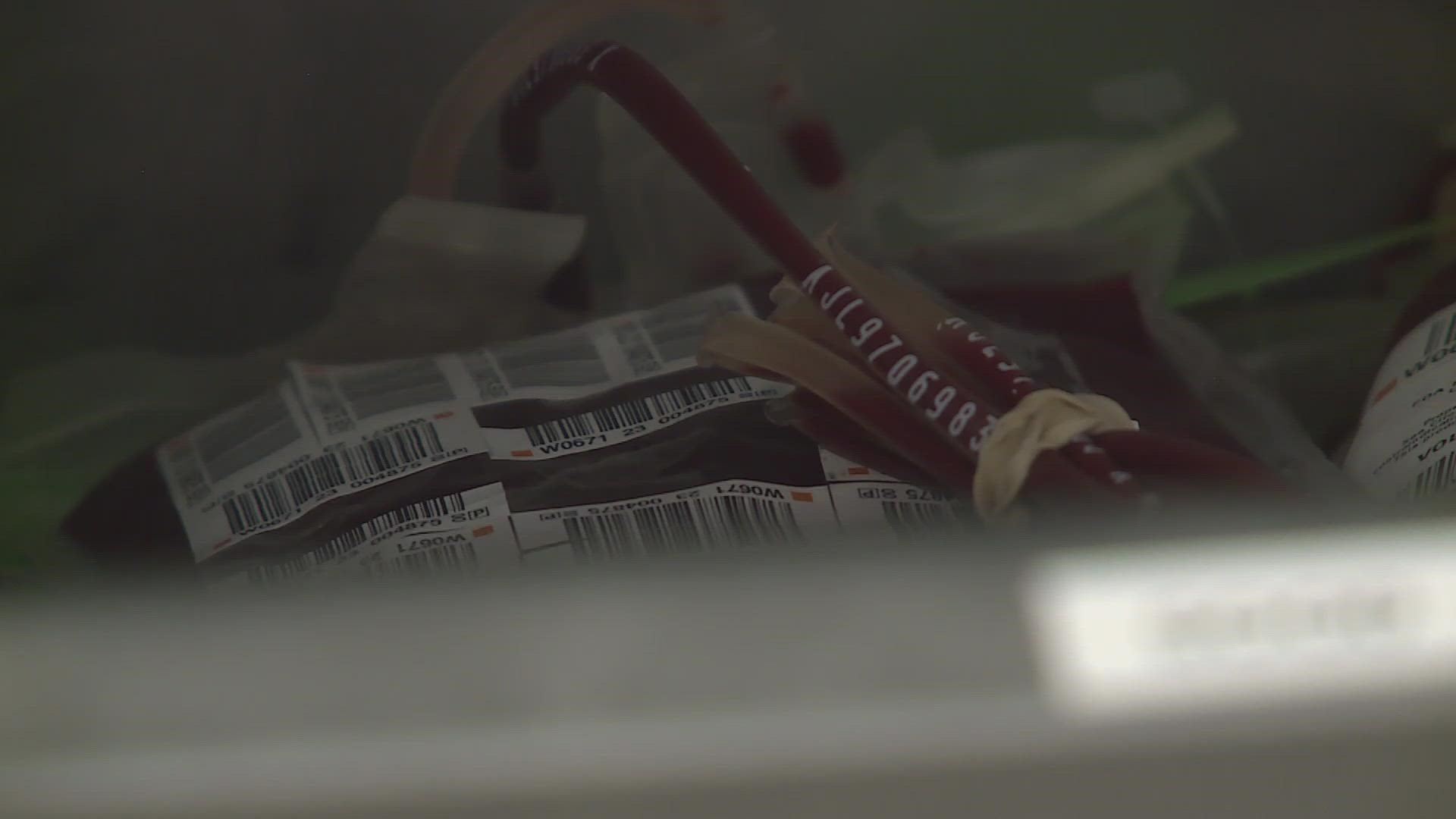NEW ORLEANS — The New Orleans Emergency Medical Service is now using a procedure developed on the battlefield to help save lives in a city riddled by gun violence.
In an emergency, seconds count.
“My husband was shot during a home invasion, and he was hit four times," New Orleans resident Leslie Cooper said.
Cooper’s husband Joe, a talented tie-dye designer, was gunned down in the doorway of their St. Roch Avenue home in Gentilly last May. She says he was attacked by a man asking about a package that may have been delivered there.
Bullets struck him in the abdomen and legs.
“That is a lot of blood loss, a tremendous amount of blood loss, he also had a collapsed lung,” Cooper said.
New Orleans paramedics responded quickly to the shooting and gave Joe a unit of blood on the way to University Medical Center.
“The emergency room physician looked me in the eye and said this is the reason Joe arrived still alive, is that unit of blood he got in the ambulance," Cooper added.
As New Orleans EMS units drive the streets, they now carry an important tool on board.
The service is the first in the region and one of a handful in the country capable of providing emergency blood transfusions in the field.
“We’ll respond to a call if it sounds like it needs blood,” NOEMS Paramedic Cole Dupepe said. “The medic that’s in the sprint car will grab the bag, jump on to the ambulance with the crew and administer the blood to the patient in route to the hospital.”
Dupepe says they can administer Type-O, whole blood during trauma events, such as a shooting, stabbing or major crash.
It’s compatible with all blood types.
“Those two big things, tissue loss and blood loss are what kill a trauma patient,” Dupepe said. “We can fix the blood problem directly. Before, out in the field, it was just regular IV fluids, normal saline, that sort of thing and extra oxygen.”
The “Blood on Board” program started in October 2021, just six months before the shooting that critically injured Joe Cooper.
His wife said it gave her husband a fighting chance.
“I think about the traffic that would have been out and the route they would have taken, construction and everything else, he probably wouldn’t have,” Leslie Cooper said. “He would have bled out before he got there.”
Dupepe carries the blood in the back seat of his Sprint vehicle which is smaller and more maneuverable than a regular ambulance.
“You use this hand pump to deliver the unit of blood and we can get a unit of blood into somebody in just a couple of minutes,” Dupepe said. “It’s very quick and then the blood itself, it’s in a thermal isolation chamber in this bag. We monitor its temperature all through the day and we keep it, so it’s all insulated in here and there’s the two units of blood that we normally carry on the unit on any one time.”
Knowing that a bag of blood can be the difference between life and death, New Orleans paramedics are not only trained on how to administer it, but many of them are also regular blood donors.
“Being a paramedic that administers blood to patients in the field and also donating blood it creates this very gratifying circle,” Dupepe said. “To know that we’re putting it out there in the field to help those who need it and also putting back into the pool for available blood for everybody, anywhere.”
The one unit of blood made all the difference for Joe Cooper.
His family and friends have held several blood drives since the shooting to help replenish the local supply.
“When they can perform miracles like that and make these things happen and save people’s lives it’s worth every bit of it,” Leslie Cooper said.
NOEMS has performed about 126 blood transfusions in the field since the start of the program in October 2021.
► Get breaking news from your neighborhood delivered directly to you by downloading the new FREE WWL-TV News app now in the IOS App Store or Google Play.

